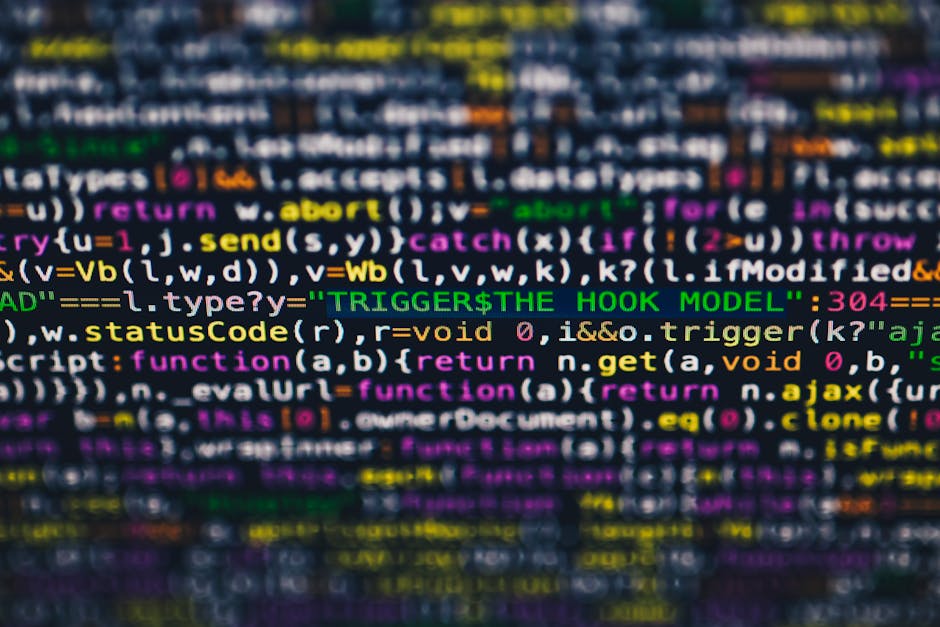Table of Contents
Want to get into program development? Well, it’s a field that constantly changes. You gotta stay on top of things, learning new stuff all the time. This isn’t some easy path, nobody just wakes up and codes a big app. It demands real work, lots of practice, and a strong drive to figure things out. People who succeed here usually stick with it.
Lots of folks want to become program developers by 2025; the demand is still high. But knowing where to start? That is tough. You see a million online courses; everyone promises quick results. Mostly, it just ends up being confusing. Getting a clear direction for your learning helps a lot, trust me on this.
It takes more than just memorizing code; you need to understand how things connect. Thinking about problems differently is a huge part of it. Program developers often solve puzzles all day long. They look at a complex issue and break it down into smaller, manageable pieces, then write code to fix each piece.
You also need a solid grip on computer science basics. Knowing how computers actually work underneath the hood really helps. Things like data structures and algorithms, those are foundational. Without them, building anything serious becomes much harder. It’s like trying to build a house without understanding how foundations work.
So, how do you even start this journey? What’s the first step? Many people jump straight into learning a language, like Python or JavaScript. That’s fine, but a broader view helps. Think about what kind of programming you want to do. Web stuff? Mobile apps? Games? Something else entirely?
Understanding the Basics is Key
Before you write one line of code, you should probably understand what programming even is. It’s giving instructions to a computer. Simple, right? But those instructions need to be super clear. A computer will do exactly what you tell it, nothing more, nothing less. This means you have to be very precise.
And what about problem-solving? That’s really the core skill here. Program development is fundamentally about solving problems with logic. You identify an issue, design a solution, then turn that solution into instructions for the computer. This process repeats endlessly, getting more complex with time.
Picking Your First Language
Okay, so you grasp the basics. What’s next? Picking a language is a big deal. For beginners, Python is often recommended. It reads pretty much like plain English, making it easier to pick up. JavaScript is another good one, especially if web development interests you. Both are popular choices for a good reason.
You could also consider Java, a widely used language for enterprise applications and Android mobile development. C++ is powerful but more complex, often used in game development or systems programming. My belief is that starting simpler helps avoid getting overwhelmed right away. You can always learn more later.
Just pick one and stick with it for a while. Don’t jump around too much. It’s better to get a decent grasp of one language first, understand its quirks, its strengths, before moving to another. Some people try to learn five languages at once; that’s rarely effective. Focus on the fundamentals within that language.
Getting Your Hands Dirty with Code
Reading about code isn’t enough; you must write it. Lots of it. Every day, if you can. Even if it’s just small programs. Practice really makes a difference. Try to build simple things first: a calculator; a guessing game; a basic to-do list application. These small projects reinforce what you’re learning.
There are tons of free resources online. Websites like freeCodeCamp; Codecademy; HackerRank offer interactive coding exercises. YouTube also has countless tutorials. Just start typing code. Get comfortable with making mistakes; you will make many, it’s part of how you learn. Everyone messes up sometimes.
And get a good text editor or an Integrated Development Environment (IDE). Something like VS Code is really popular and free. It helps you write code, shows errors, and makes it easier to manage your files. Using the right tools makes the whole process smoother. It’s like a carpenter needing good tools.
Understanding Data Structures and Algorithms
This is where things get a bit more academic, but it’s super important. Data structures are ways to organize data; algorithms are step-by-step instructions for solving problems. Think of a phone book: how is it organized for fast lookup? That’s a data structure. How do you find a name in it? That’s an algorithm.
Knowing these things helps you write efficient code. Code that runs fast and uses less memory. Companies often test candidates on these concepts during interviews. So, it’s not just theory; it has practical applications. You can find many resources dedicated to these topics online, even for free.
Sometimes people skip this part, thinking it’s too boring or too hard. But in my experience, it really helps you write better programs in the long run. It makes your solutions more elegant. Plus, understanding these makes learning new programming languages much easier later on. It’s like learning how engines work before driving every car.
Version Control: Learning Git and GitHub
Almost every program developer uses Git. It’s a system for tracking changes in your code. Imagine working on a big project with other people, or even by yourself, and you want to keep track of every change you make. Git handles that. It lets you go back to older versions if you mess up something.
GitHub is a website that hosts Git repositories. It’s like a social network for code. You can store your projects there, share them with others, and collaborate. Having a GitHub profile with your projects shows potential employers what you can actually do. It’s basically your online portfolio for code.
Learn the basic commands: `git clone`; `git add`; `git commit`; `git push`. These are pretty much essential for working in any team. It might seem confusing at first, but it saves so much headache in the future. Just dive in and try it with one of your small personal projects. You will quickly get the hang of it.
Building Projects: Your Developer Portfolio
Just knowing how to code isn’t enough; you need to show what you can build. Personal projects are your best bet. Start small, simple applications; then try to make them bigger and more complex. Think about problems you face in your daily life and try to write a program that solves them.
These projects do several things for you: they solidify your learning; they show your ability to apply knowledge; they give you something to talk about in interviews. Don’t just follow tutorials step-by-step. Try to build something unique, even if it’s just a twist on an existing idea. Show your own thinking.
And it does not matter if the projects are perfect. Employers want to see that you can complete something, that you can learn, and that you understand the process. They’d rather see a few finished, even imperfect, projects than a dozen half-done ones. So, aim for completion, not just starting.
Continuous Learning and Specialization
The world of program development changes fast. New languages; new frameworks; new tools come out all the time. What was popular last year might be old news next year. So, you have to keep learning. It’s not a one-and-done kind of career. If you stop learning, you fall behind quickly.
Maybe you find you really like web development, working with front-end (what users see) or back-end (server logic). Or perhaps mobile app development is your thing. Some people love data science. Find an area that interests you and go deep into it. Specialize, become really good at something.
This doesn’t mean ignoring other areas entirely, just focusing your efforts. It makes you a more valuable asset. Being a jack-of-all-trades is okay, but being a master of one is often better for getting good jobs. What’s interesting is how many paths there are once you get the core skills down.
The Role of Community
You are not alone in this. There are huge online communities for program developers. Stack Overflow is where people ask and answer coding questions. Reddit has subreddits like r/learnprogramming. Join these communities. Ask questions. Help others if you can. You learn a lot from them.
Going to local meetups, if any exist, can also be helpful. Meeting other developers, sharing ideas, even finding mentors. These connections can really open doors. Sometimes, just talking through a problem with someone else helps you see the solution. Don’t try to do everything by yourself.
Collaboration is a big part of programming in the real world. So, getting used to interacting with other developers early on is a smart move. It also keeps you motivated. Seeing what others are building can inspire your own projects, pushing you further. It’s a supportive environment.
The Job Search and Beyond
Once you feel ready, start looking for jobs. Internships are a great way to get started. They give you real-world experience and often lead to full-time positions. Update your resume and make sure your GitHub profile is neat and shows off your best work. Practice answering common interview questions.
technical interviews can be tough; they often involve coding challenges on a whiteboard or computer. Don’t get discouraged if you don’t get the first job you apply for. It’s a numbers game sometimes. Keep practicing; keep applying. Every interview is a chance to learn and get better.
What I believe is that persistence is key. Many developers faced rejection before landing their first role. Learn from each experience. Ask for feedback if you can. The first job is often the hardest to get, but once you have that experience, things usually get much easier. It’s a continuous climb.
Key Takeaways
Start with Fundamentals: Learn core computer science before just coding; problem-solving is critical.
Pick One Language: Master a language like Python or JavaScript first; do not scatter your focus.
Code Daily: Practice writing code constantly; small projects really make a difference.
Understand Data & Algos: Learn data structures and algorithms; it makes your code fast and smart.
Use Version Control: Git and GitHub are necessary tools; build your portfolio there.
Build Projects: Create your own applications; they show what you can actually do for real.
Never Stop Learning: The field changes; keep updated; specialize in an area you like.
Join Communities: Interact with other developers; it helps with learning and opportunities.
Frequently Asked Questions
Q: How long does it take to become a program developer: depends on commitment; prior knowledge; daily effort?
A: It really varies. Some people pick it up pretty fast, maybe six months to a year for a basic level, especially with focused bootcamps. Others take longer, doing it part-time. Your commitment matters most.
Q: Is a computer science degree required: no; but it helps; self-taught developers exist?
A: No, it’s definitely not always required. Many successful developers are self-taught or went through coding bootcamps. A degree can help with foundational knowledge, but practical skills and projects often weigh more.
Q: What programming language is best for beginners: Python; JavaScript; usually one of those two?
A: Python is widely suggested for beginners because it’s readable and versatile. JavaScript is great if you want to get into web development quickly. Either one makes for a good starting point.
Q: Can I get a job without prior experience: yes; internships; junior roles; personal projects help?
A: Yes, you can. Internships are crucial here. Focus on building strong personal projects to show your skills. Look for junior developer roles; many companies are open to hiring motivated beginners.
Q: How important are soft skills for a developer: very; communication; teamwork; problem-solving beyond code?
A: Very important. Program development is often a team sport. Being able to communicate clearly, work with others, and solve problems collaboratively is as crucial as writing good code.












